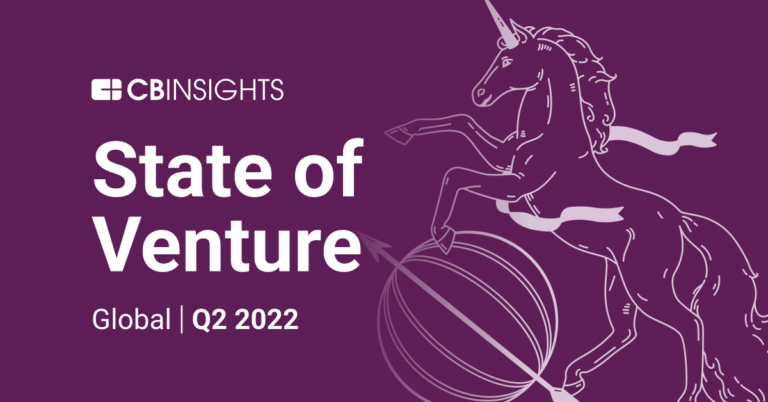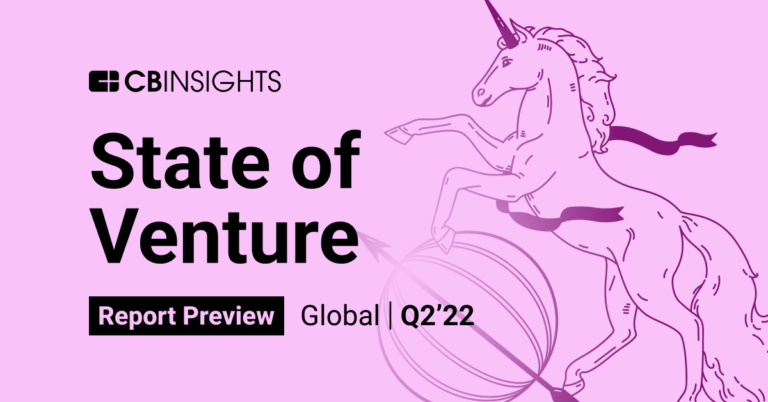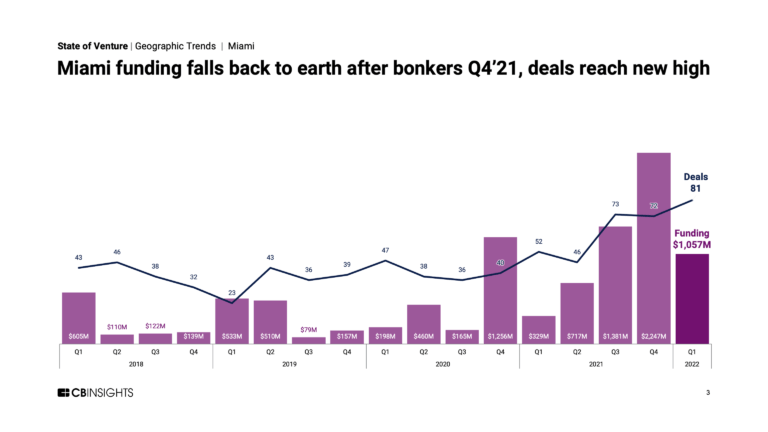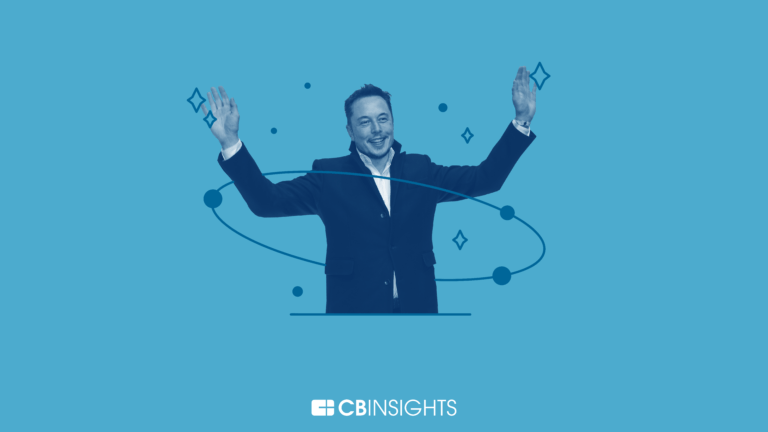
The Boring Company
Founded Year
2016Stage
Series C | AliveTotal Raised
$907.52MValuation
$0000Last Raised
$675M | 1 yr agoMissing: The Boring Company's Product Demo & Case Studies
Promote your product offering to tech buyers.
Reach 1000s of buyers who use CB Insights to identify vendors, demo products, and make purchasing decisions.
Missing: The Boring Company's Product & Differentiators
Don’t let your products get skipped. Buyers use our vendor rankings to shortlist companies and drive requests for proposals (RFPs).
Research containing The Boring Company
Get data-driven expert analysis from the CB Insights Intelligence Unit.
CB Insights Intelligence Analysts have mentioned The Boring Company in 4 CB Insights research briefs, most recently on Jul 12, 2022.
Expert Collections containing The Boring Company
Expert Collections are analyst-curated lists that highlight the companies you need to know in the most important technology spaces.
The Boring Company is included in 2 Expert Collections, including Construction Tech.
Construction Tech
920 items
Companies using technology to improve processes in the construction industry.
Unicorns- Billion Dollar Startups
1,208 items
The Boring Company Patents
The Boring Company has filed 1 patent.

Application Date | Grant Date | Title | Related Topics | Status |
|---|---|---|---|---|
3/31/2004 | 5/19/2009 | Metallurgy, Metal forming, Welding, Continuum mechanics, Sedimentary rocks | Grant |
Application Date | 3/31/2004 |
|---|---|
Grant Date | 5/19/2009 |
Title | |
Related Topics | Metallurgy, Metal forming, Welding, Continuum mechanics, Sedimentary rocks |
Status | Grant |
Latest The Boring Company News
May 6, 2023
Elon Musk Twitter Tweets: The 10 Best Elon Musk is a very active user of Twitter, and he often uses the platform to share his thoughts, insights, and updates about his companies. Musk has over 60 million followers on Twitter, and his tweets often receive widespread attention and media coverage. Musk is known for his unconventional approach to social media, and he has a reputation for using Twitter to make bold and sometimes controversial statements. He has used Twitter to announce new products, share photos and videos, and even engage in public debates with other high-profile figures. At times, Musk’s tweets have landed him in hot water, and he has faced criticism for making statements that some perceive as insensitive or inappropriate. In 2018, for example, Musk was sued by a British cave diver after he called the diver a “pedo guy” on Twitter. Musk later apologized for the comment and deleted the tweet. Despite these controversies, Musk’s tweets remain a major part of his public persona, and many of his fans and followers look to his Twitter account as a source of inspiration and insight into his vision for the future. Here are some of Elon Musk’s most memorable tweets: “The future is extremely bright for humanity. If we can solve sustainable energy and become a spacefaring civilization, we will have solved the two biggest problems we face.” Elon Musk is known for his strong advocacy for sustainable energy and reducing carbon emissions. He has spoken extensively about the importance of transitioning to sustainable energy sources such as solar, wind, and electric power, and has been actively involved in promoting and advancing these technologies through his various companies, including Tesla and SpaceX. Some of Musk’s notable statements on sustainable energy include: “We must transition to a sustainable energy economy and leave oil before oil leaves us.” (Twitter, February 2021) “The future of humanity is going to bifurcate in two directions: Either it’s going to become multiplanetary, or it’s going to remain confined to one planet and eventually there’s going to be an extinction event.” (Interview with Joe Rogan, September 2018) “If we don’t solve sustainable energy this century, we’re toast. We have to make a sustainable energy future. It’s got to be the thing that warms our hearts.” (Interview with Y Combinator, September 2013) Through his work with Tesla, Musk has helped to popularize electric vehicles and renewable energy storage solutions, and has been a vocal proponent of these technologies as key components of a sustainable future. Additionally, through SpaceX, Musk has focused on developing space exploration technologies that could eventually help enable the long-term survival of humanity by making it possible to establish human colonies on other planets. “I want to die on Mars. Just not on impact.” Elon Musk is a strong advocate for the colonization of Mars, and he has spoken extensively about his plans to make humanity a multi-planetary species. Here are some notable statements he has made about Mars: “I think there is a strong humanitarian argument for making life multi-planetary in order to safeguard the existence of humanity in the event that something catastrophic were to happen.” (Interview with Aeon Magazine, November 2012) “I want to die on Mars. Just not on impact.” (Twitter, December 2012) “The long-term aspiration is to develop the technology to terraform Mars and make it a habitable planet for humans.” (Interview with The New Yorker, November 2019) “I think there’s a good chance that, in the first decade of the 21st century, we will send humans to Mars.” (Interview with The Wall Street Journal, June 2010) Through his company SpaceX, Musk has been working to develop the technology needed to make interplanetary travel a reality. His ultimate goal is to establish a self-sustaining colony on Mars, which would serve as a backup plan for humanity in case something catastrophic were to happen on Earth. In pursuit of this goal, SpaceX has been developing and testing a variety of rockets, spacecraft, and other technologies needed for sustained missions to Mars. “I’m an alien.” Yes, Elon Musk has referred to himself as an “alien” in the sense that he sometimes feels like he doesn’t quite fit in with human society. However, he has made it clear that he is not actually an extraterrestrial being. In a 2013 interview with CNBC, Musk said, “I’m an alien… I’m from the planet of Mars.” When the interviewer expressed skepticism, Musk clarified, “Obviously, I’m just kidding. But if you look at the pictures from Mars, you’re like, ‘Whoa, someone was there.’ I think it’s sort of fun to think about what that might mean for us.” Musk has also referred to himself as a “cyborg” because of his extensive use of technology to enhance his capabilities. In a 2019 interview with Lex Fridman, Musk said, “I think I’m quite good at figuring out if something is a cyborg or not… and I’m pretty sure I’m a cyborg.” He went on to explain that he has multiple devices implanted in his body, including a chip that allows him to control his phone and computer with his mind. Overall, Musk’s comments about being an alien or a cyborg should be taken as tongue-in-cheek references to his unique perspective and his unconventional approach to life and business. “Tesla is alive only because of the extreme dedication & hard work of the Tesla team. Most members worked 100-hour weeks for several months.” Elon Musk has spoken publicly about his belief that working long hours can be necessary to achieve ambitious goals, but he has also emphasized the importance of balance and taking care of oneself. In a 2018 interview with Recode, Musk said that he worked between 80 and 90 hours per week, and that “there were times when, some weeks … I worked 120 hours.” He added that “if you do the simple math, that’s like three weeks of work in one,” and that he didn’t recommend that level of intensity to others. However, Musk has also said that he doesn’t expect his employees to work as many hours as he does. In a 2019 email to Tesla employees, he wrote that “there’s no need to work more than 80 hours a week, and [that] doing so is hurting Tesla more than it’s helping. We need sustained, excellent performance. There are many companies that offer a better work-life balance, and that’s important.” Overall, while Musk has acknowledged that long hours can be necessary to achieve certain goals, he has also emphasized the importance of balance and taking care of oneself, and has advised against working excessively long hours on a sustained basis. “I think it’s important to have a future that is inspiring and optimistic. There are enough things to be worried about, so why not try to make things better?” Elon Musk has frequently spoken about the importance of being optimistic and maintaining a positive attitude, particularly when pursuing ambitious goals and facing difficult challenges. In various interviews and public appearances, Musk has expressed his belief that optimism is a key factor in driving innovation and progress. He has often emphasized the importance of maintaining a positive outlook, even in the face of setbacks and obstacles. For example, in a 2017 interview with TED curator Chris Anderson, Musk stated that “I’m not trying to be anyone’s savior. I’m just trying to think about the future and not be sad.” He added that “you want to be optimistic about the future. You want to be excited about where things are going.” Similarly, in a 2018 interview with Rolling Stone, Musk said that “optimism, I think, is a really important attribute to have. It’s a thing that inspires people, it’s infectious. If you’re an entrepreneur, you have to be an optimist, because by definition, you’re trying to do something that’s never been done before.” Overall, Musk has consistently emphasized the importance of maintaining a positive attitude, even when facing challenging circumstances, and has suggested that optimism is a critical factor in driving progress and achieving ambitious goals. “Just received verbal govt approval for The Boring Company to build an underground NY-Phil-Balt-DC Hyperloop. NY-DC in 29 mins.” Elon Musk has expressed interest in using his tunneling company, The Boring Company, to build a high-speed transportation system between New York City and Philadelphia. In July 2017, Musk announced via Twitter that he had received “verbal government approval” to build an underground hyperloop between the two cities, which would enable travel between them in under 30 minutes. He suggested that the hyperloop could be built by The Boring Company, which he founded in 2016 as a means of addressing traffic congestion by tunneling underground. In subsequent statements, Musk has emphasized that the project is still in the planning stages, and that significant work would need to be done before construction could begin. He has also acknowledged that obtaining the necessary permits and approvals for such a project could be challenging. Nonetheless, Musk has expressed optimism about the potential of underground tunneling to transform transportation in major cities, and has suggested that The Boring Company could play a key role in realizing this vision. In addition to the New York-Philadelphia project, the company has also proposed tunneling projects in other cities, including Los Angeles and Chicago. “Am considering taking Tesla private at $420. Funding secured.” In August 2018, Elon Musk tweeted that he was considering taking Tesla, his electric car company, private at a price of $420 per share. He added that funding for the move had already been secured. The tweet immediately caused a stir in financial markets, and raised questions about whether Musk had violated securities laws by making material statements about the company’s status without prior disclosure to shareholders. The Securities and Exchange Commission (SEC) subsequently launched an investigation into the matter. In subsequent statements, Musk acknowledged that the tweet had been made without proper consideration, and that he had not yet secured funding for the move. He also suggested that the move to take Tesla private was motivated by his frustration with the pressures of operating a publicly traded company, and his desire to focus on long-term growth rather than short-term financial performance. Ultimately, Musk and Tesla reached a settlement with the SEC in September 2018, under which Musk agreed to step down as chairman of the company and pay a $20 million fine. The settlement also required Tesla to appoint new independent directors and implement new controls to oversee Musk’s communications with the public. Since that time, Musk has largely avoided making public statements about the possibility of taking Tesla private, and the company has continued to operate as a publicly traded entity “Mars terraformed in our lifetimes, with a big enough fleet, this can be done in 100 years.” Elon Musk has expressed his interest in terraforming Mars, which refers to the process of transforming the planet’s environment to make it more hospitable to human life. In various interviews and public appearances, Musk has suggested that terraforming Mars could be a key step in enabling long-term human settlement of the planet. He has proposed several methods for achieving this goal, including the use of nuclear weapons to trigger the release of trapped carbon dioxide from the planet’s polar ice caps, which could potentially create a greenhouse effect and warm the planet’s atmosphere. However, Musk has also acknowledged that terraforming Mars would be a long-term and complex process, and that significant technical challenges would need to be overcome before it could be achieved. He has emphasized the importance of incremental steps towards making the planet more habitable, such as developing methods for growing crops in Martian soil and creating sustainable sources of energy. Overall, Musk has spoken about terraforming Mars as a long-term goal for human exploration and settlement, but has also emphasized the need for caution and careful planning in pursuing such an ambitious endeavor. “I’m starting a candy company & it’s going to be amazing.” In May 2018, Elon Musk made a series of tweets jokingly suggesting that he was going to start a candy company. The tweets were a playful response to comments made by billionaire investor Warren Buffett, who had criticized Musk’s tendency to focus on “moats” or competitive advantages, rather than building more defensible businesses. Musk tweeted: “I’m starting a candy company & it’s going to be amazing”, and later added, “I am super, super serious.” He went on to suggest that the candy company would be called “Cryptocandy”, a reference to the cryptocurrency industry, and that it would sell “electric skateboards too.” While the tweets were clearly intended as a joke, they also highlighted Musk’s irreverent sense of humor and his tendency to use social media to playfully engage with his followers. In the months following the tweets, Musk continued to make light-hearted references to the idea of a candy company, but there has been no indication that he has any serious plans to start one. “I love the thought of a car drifting seemingly endlessly through space and perhaps being discovered by an alien race millions of years in the future.” In February 2018, Elon Musk’s company SpaceX launched a Falcon Heavy rocket, which carried a payload consisting of Musk’s own Tesla Roadster car. The car was fitted with cameras and set to orbit around the sun, with the idea of demonstrating the capabilities of the Falcon Heavy rocket and raising awareness about SpaceX’s space exploration goals. During a press conference after the launch, Musk was asked about the decision to launch the car into space, and specifically about a video that appeared to show the car drifting in orbit. Musk responded by saying, “I think it looks so ridiculous and impossible. You can tell it’s real because it looks so fake, honestly.” Musk went on to explain that the decision to launch the car was partly inspired by his interest in space exploration and his desire to inspire the public about the possibilities of space travel. He also noted that the car was fitted with a “Starman” dummy in the driver’s seat, and that a recording of David Bowie’s song “Space Oddity” was playing on the car’s stereo system, further emphasizing the playful and irreverent tone of the project. Overall, Musk’s comments about the car drifting through space were light-hearted and humorous, reflecting his enthusiasm for space exploration and his willingness to take creative risks in pursuing his vision for the future of space travel.
The Boring Company Frequently Asked Questions (FAQ)
When was The Boring Company founded?
The Boring Company was founded in 2016.
Where is The Boring Company's headquarters?
The Boring Company's headquarters is located at 15709 Impact Way, Pflugerville.
What is The Boring Company's latest funding round?
The Boring Company's latest funding round is Series C.
How much did The Boring Company raise?
The Boring Company raised a total of $907.52M.
Who are the investors of The Boring Company?
Investors of The Boring Company include VY Capital, 8VC, Craft Ventures, Founders Fund, Sequoia Capital and 9 more.
Who are The Boring Company's competitors?
Competitors of The Boring Company include EarthGrid.
Compare The Boring Company to Competitors
EarthGrid develops tunnel-boring technology. The company develops machines that employ plasma torches to vaporize and break up rock, clay, and obstacles into small fragments. It offers quantum-speed internet, clean water, wastewater, transportation, and delivery services. EarthGrid was founded in 2016 and is based in Richmond, California.
Petra offers trenchless multi-tool to bore through all geologies. It offers technology that helps to open micro-tunnels and offers technology for the construction industry. It was founded in 2020 and is based in San Francisco, California.
Ursa Major develops propulsion technologies. It is used by various vehicles belonging to the microsatellite category for launch and hypersonic applications. Its propulsion engines consist of a combustion engine that runs on liquid oxygen and a kerosene engine. It was founded in 2015 and is based in Berthoud, Colorado.

SpinLaunch creates a system that accelerates the space-launch vehicle to hypersonic speeds using ground-based electricity. Applying the initial performance boost from a terrestrial-based launch platform will enable the company to provide a substantially lower cost launch to orbit, multiple times per day. The company was founded in 2014 and is based in Long Beach, California.

HyperTunnel develops tunneling technology designed to enable underground infrastructure in a faster, cheaper, safer, and more environmentally-friendly manner. It serves clients operating in the construction industry. It was founded in 2018 and is based in Hampshire, England.

Texas Guadaloop is a team of students from the University of Texas at Austin working on Hyperloop research and development. The team is a competitor at the Space X Hyperloop competition from Austin, Texas. Texas Guadaloop develops a pod fueled by air using air bearings to transform transportation.
Discover the right solution for your team
The CB Insights tech market intelligence platform analyzes millions of data points on vendors, products, partnerships, and patents to help your team find their next technology solution.



